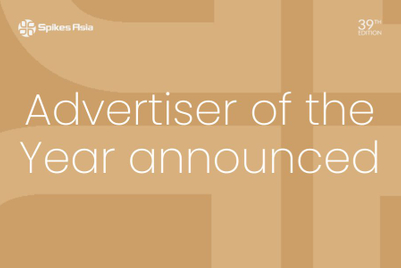
| PARTNER CONTENT |
You may not believe it, but fake news and the rise of populism is changing the face of advertising—for the good.
Jeremy Perrott, global chief creative officer at McCann Health, brought together an eclectic group in Cannes last month: a former astronaut, a singer, a director, an UN representative, agency creatives and pharma brand marketers. He was looking for an answer that is arguably more important for healthcare advertisers than most others, but it affects all who care about communicating.
“The whole world’s sore. It’s upside-down and everyone is questioning everything. So how do we retain the integrity in our communications?” he asked. The answer, after 90 minutes of discussion, lay in the arts of conversation, empathy and education. But there is likely to be a whole lot of disruption along the way.
We need to embrace the power of populism and make it our brand
—Jeremy Perrott, Global Chief Creative Officer, McCann Health
Evidence versus faking it
Healthcare communication is based on evidence, but this is a casualty of the “tsunami of populism”, according to John Cahill, the global chief executive of McCann Health. Yet, even when you go to the moon, some people assume you faked it, former NASA astronaut Mike Massimino said. “It’s too incredible,” Great Guns director Jonty Toosey observed, adding that conspiracy theories can be so much more exciting. “So if you’re abducted by an alien,” Massimino advised, “make sure you come back with a souvenir to prove it.”
The speed of fake news and the rise of a populist idea and movement is another challenge for advertisers. “The time between an idea being deployed and a counter-narrative taking root is pretty much non-existent,” Ghanaian singer and social activist Rocky Dawuni said. “In an era where you can’t find truth, truth becomes a more valuable currency. It’s up to us to use communication in a way that stakes a claim to what truth really is.”
Asna Towfiq, market manager at Global Alliance for Clean Cookstoves (Bangladesh), who works to replace dangerous cookstoves and fuels with safer and cleaner options, agreed with the need for evidence in her line of business, especially when you are working with lifesaving products and technologies. But, Dawuni added, data is nothing without the storytelling around it that shows what it really means for people and why it is important.
In the past there was a truth. Now you create your own truth, depending on what social media you choose
—Ronny Greif, VP, Head of Business Partnering Procurement, Marketing PHARMA, Bayer

More conversations, fewer presentations
When pharma companies or agencies talk about the contribution of innovation in the industry to improving the quality of life over the past 100 years, some anti-pharma lobby groups distort the facts and question it. “So whatever creativity we use in our messaging, it has to be mob-rule-proof,” Cahill said.
But if populism is the rising up of the masses against the elite, is it because it is leaving the masses behind, he asked?
Could it be that the pharma industry is using outmoded ways of learning who people are, what’s important to them and what they want? The healthcare industry typically never enters into dialogue with its consumers and so neither side learns or changes its view about the other, Cahill suggested. “Would pharma still be thought of as a pariah if we had more conversations and fewer presentations?” If you look at the positive side of things, populism can actually drive diversity—beyond gender and race—and help to move our industry forward, which is very important, Marcia Goddard, chief creative officer at McCann Torre Lazur, said.
We, by and large, view the system as sick care as opposed to health care, meaning people only use their health care when they’re sick. It’s time we change this
—Stephen Cassell, VP, Global Branding, Cigna
Everyone agrees that storytelling around data and evidence is crucial. But Markus Saba, Eli Lilly and Company’s senior marketing director, global diabetes brands, asked for help from agency creatives. “For me, it still comes down to credibility. I need help with the creativity around how we create a source of authority that is legitimate in the mind of the populists,” he said. “We live in a global market,“ added Toosey, and everything’s happening everywhere. “But when you localise the narrative, it makes things much more personal and it has more of an impact.”
Partly it’s about breaking through the technology barrier and actually talking to people and connecting, McCann Healthcare’s executive creative director, Frank Mazzola, added. “Everybody communicates virtually these days so everything feels kind of distant.”
The disconnection from anyone outside your own bubble is a real issue, argued Ronny Greif, vice-president, head of business partnering procurement—marketing PHARMA at Bayer. “In the past there was a truth. Now you create your own truth, depending on what social media you choose.”
Healthcare is the last industry that has not yet been disrupted
—Markus Saba, Senior Marketing Director, Global Diabetes Brands, Eli Lilly and Company
Disruption is coming
“Pharma is perceived as the bogey man in this”, Saba said, and healthcare is the last industry not yet disrupted. “I argue that it’s unsustainable. It’s going to break and we’re ripe for disruption. Something is going to come in that’s a disrupter.” That will be creativity, Perrott contended. “It’s creativity that has to shift perception.”
“While we will always focus on providing the best possible care when people are sick—it is critical that we spend the same amount of time on wellness. We, by and large, view the system as sick care as opposed to health care, meaning people only use their health care when they’re sick. It’s time that we change this,” Stephen Cassell, vice-president, global branding, at Cigna, said.
People assume populism is based on fear, but it can also be driven by inspiration, Dawuni suggested. Giving people positivity and a “glimmer of hope” might be a way to harness its power—a genuine message of “compassion, empathy, hope.”
Empathy and authenticity—particularly the latter—are indeed the key, according to Cahill. Evidence used to equal truth and truth used to engender trust. “Now the pharma industry is losing societal trust,” he conceded. “Pharma doesn’t need to tell people how many hours they’ve spent in R&D, but instead to ask how they can authentically represent themselves to them. Not selling, but ‘always listening’. Have a conversation. Gain insight.”
Many businesses are now “going beyond the transaction” and acting with more social enterprise. “As creative agencies, we can work with our clients to take the high ground and build on populist movements,” McCann Health Americas president, Amar Urhekar, said.
Perrott summed it up: “It’s funny, I came to this conversation, thinking ‘I wonder how negative this is going to be?’ But, I actually think this has been a very positive conversation. The fear factor of populism isn’t there for me. It’s actually turned out to be something really cool.”
“Moving forward, I think we need to write a brief. But I don’t think it’s a brief for the agency”, Perrott suggested. “I think it’s a brief for us, because we’re going to need to make a cultural change. We’ve got to educate the people who are reluctant to change and help them see something positive about the world they’re living in. We need to embrace the power of populism and make it our brand. “
“The way to embrace the power of the populist dynamic is to create new conversations where pharma is part of the conversation between doctor and consumer,” Cahill added. “The tools of conversation are being built by consumers themselves—let’s learn from that.”
Cahill pledged that McCann Health will come up with “three tools of conversation to change the paradigm”. The agency had already done some early work, he said. “Let’s push it harder.”





.jpg&h=334&w=500&q=100&v=20250320&c=1)

.jpg&h=334&w=500&q=100&v=20250320&c=1)
.jpg&h=334&w=500&q=100&v=20250320&c=1)

.jpg&h=334&w=500&q=100&v=20250320&c=1)
.png&h=334&w=500&q=100&v=20250320&c=1)







